
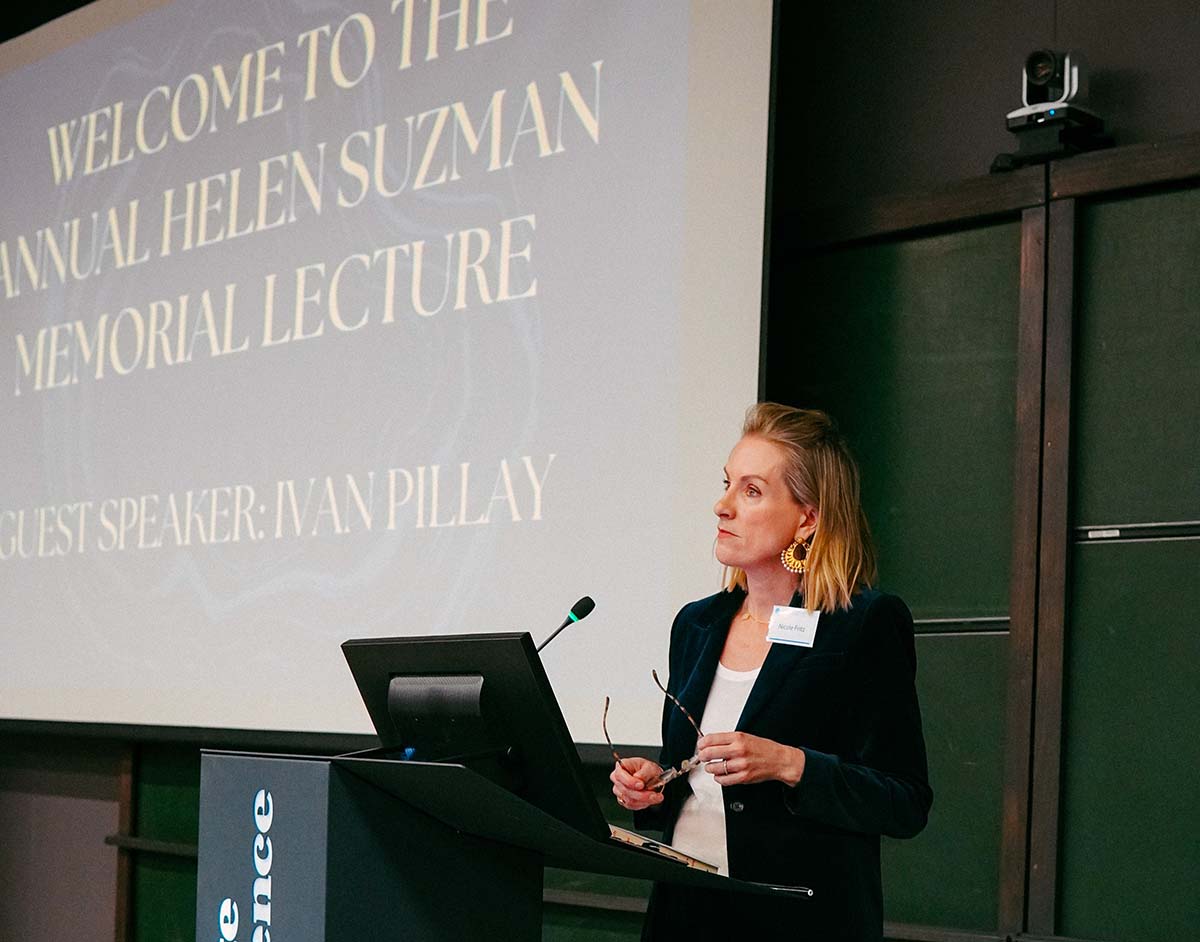
Dear Friends,
All of us South Africans are desperate for a reprieve this year-end — an opportunity to take refuge from the uncertainty that characterises so much of daily life here in South Africa.
While we wish we could offer all of you that peace, we can’t. No falsely cheery year-end message can. But Ivan Pillay’s lecture, titled “Rebuilding Democratic Life and Institutions” and delivered as the revived Helen Suzman Annual Memorial lecture for 2023 can stiffen all our resolve. In seeking to counter the despondency that so many in SA feel right now, Pillay — one of SA’s finest public servants — was careful not to offer any false hope. The land of miracles, if ever it once was, is not one we now inhabit. Parroting the soaring provisions of our Constitution will not usher in the democracy we want. That requires the far more gritty, potentially tedious work of research, analysis, data collection, policy formulation, planning, systems building and compliance management.
Pillay sets out a number of concrete measures to be adopted if we are to fix and stabilise South Africa, a necessary first step before embarking on any grander schemes. Arduous as that sounds, and will no doubt be, a real plan — formulated by a public administrator with real experience leading a South African-specific, globally excellent state institution — allows me reason to hope. I highly recommend it to all of you.
Earlier this week, we received the very sad news that Charles Simkins, the longtime head of research at HSF and an esteemed political economist, had passed away — only a few days after the death of his beloved wife. HSF’s tribute to Charles can be read here.
It is fitting to close with these words from Charles, delivered in 1986 as part of the Alfred and Winifred Hoernlé Memorial Lecture, and which continue to be a goal for which we must work: “The problem of power is the problem of a deficit in the ethical content of social institutions. South Africans will never rid themselves of the fact or the fear of the oppressive use of power until they bind themselves to just institutions.”
I hope the December holiday offers happiness and that 2023 is a good year for our country and us all.
 Nicole Fritz
Nicole Fritz
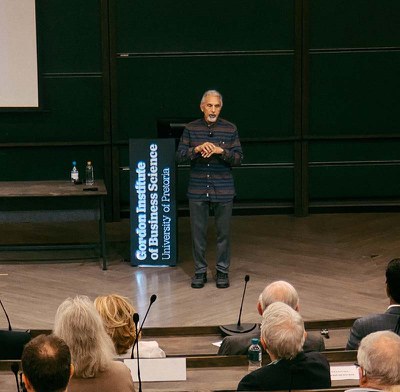 The Helen Suzman Memorial Lecture Resumes
The Helen Suzman Memorial Lecture Resumes
Last week, after a two-year hiatus owing to Covid-19, our annual Helen Suzman Memorial Lecture resumed. The lecture, delivered by former Acting and Deputy Commissioner for the South African Revenue Service (SARS), Ivan Pillay, represents a significant contribution to our public discourse. Titled “Rebuilding Democratic Life and Institutions”, the lecture resonated with the values of Helen’s life and legacy, committed as she was to reasoned, deliberative governance and to the building of a state responsive to the needs of South Africans, but especially those most vulnerable and powerless.
Mr Pillay’s message was a sobering one: that the South African state finds itself in a condition of such decay that nothing short of a concerted effort from all sectors of society is needed to revive it. Among the proposals made by Mr Pillay, addressed in the first instance at fixing and stabilising our state, and necessary if we are to move beyond the crisis, include the following: initiating a small number of well-designed programmes to make a select number of key institutions functional and effective at the national and provincial levels; initiating the centrally driven systemic improvement of a few key functions that cut across the whole of government, such as procurement, human resource management and operations management; and rationalising, depoliticising and rebuilding law enforcement institutions as parts of one interdependent system.
Ivan’s lecture can be read here and viewed here.
Sannah Mokone
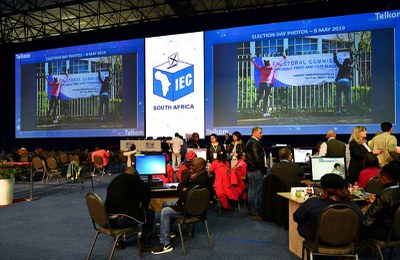 The Rocky Road to Electoral Reform in South Africa
The Rocky Road to Electoral Reform in South Africa
Recently, we learned that the National Assembly has successfully sought an extension from the Constitutional Court to comply with its order in New Nation Movement that the Electoral Act be amended to accommodate independent candidates. This extraordinary request is an embarrassment, to be sure, but it is not unexpected, given how consistently it has ignored the call from a broad cross-section of civil society to use the Court’s order as an opportunity to bring about meaningful electoral reform in South Africa.
This has been the HSF’s position since public comment was first invited for amendments to the Electoral Act. We have consistently advocated for a mixed constituency and proportional representation system as the best way to create a National Assembly that is responsive and accountable to the electorate. Since our last Newsletter, the HSF has continued to advocate for electoral reform along these lines in two ways: in a joint submission to the National Assembly in partnership with several other civil society organisations and in a submission of our own to the National Council of Provinces.
The joint submission to the National Assembly can be read here and the HSF’s submission to the NCOP can be read here.
A detailed report on the HSF’s position regarding electoral reform can be read here.
Anton van Dalsen
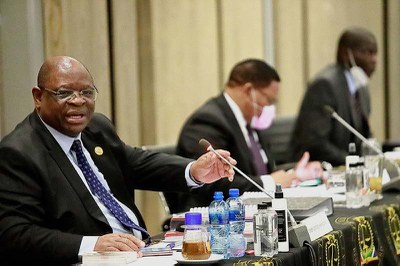 The Politics of Hard Cases and the JSC
The Politics of Hard Cases and the JSC
The Judiciary is increasingly under attack from political actors in South Africa. Dissatisfaction with the outcome of two court cases is the latest fuel to be added to the fire. Two rulings concerning parole, two prominent figures, and two different outcomes. We are, of course, talking about the Supreme Court of Appeal’s order that former President, Jacob Zuma should be sent back to prison following his unlawful placement on medical parole. The second case is that of Janus Walus, whose release on parole after being imprisoned for 28 years for the assassination of Chris Hani has been ordered by the Constitutional Court.
Following these judgments, we saw vocal outcries from several politicians, protests blocking off one of our major highways and threats to protest at Chief Justice Zondo’s home by a political party to try to force the Constitutional Court to rescind its judgment. In this context, it is ever more critical that we look to the Judicial Service Commission (JSC) and how it functions. After all, the JSC is the constitutional body responsible for appointing, disciplining and removing judicial officers in South Africa and its operations are critical to the independence of the judiciary and perceptions thereof.
In the same week that the two judgments were handed down, the HSF made comments on the JSC’s criteria and guidelines used when appointing judicial officers. Published criteria and guidelines for judicial appointment is the first step in improving the public’s trust in the JSC and the judges that it appoints. However, this is not enough on its own to ensure a JSC free from undue political influence. In order to contribute to meaningful – and necessary – reform at the JSC, the HSF published a report titled ‘In the Interests of Justice: Reform of the Judicial Service Commission.’ In this Report, the HSF offers eleven proposals which, if implemented, will ensure greater transparency, accountability and legitimacy in the work of the JSC.
In these uncertain times, our judges, and the body that appoints and disciplines them, need to be beyond reproach.
Our report on reforming the JSC can be read here.
Our comments on the JSC’s proposed criteria and guidelines for judicial appointments can be read here.
Chelsea Ramsden
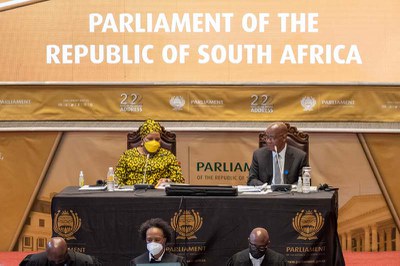 Parliament’s Attempts to Overregulate NPOs
Parliament’s Attempts to Overregulate NPOs
As part of its efforts to stave off South Africa’s ‘grey listing’ by the Financial Action Task Force, the international global money laundering and terrorist financing watchdog, Parliament has seen fit to further regulate Non-profit Organisations (NPOs). It sought to do so in a flurry of three Bills, all of which the HSF commented on. The HSF’s submissions were most concerned to address the Bills’ compulsory registration requirement for NPOs, viewing this as deeply problematic for our democracy, and the inconsistent approach adopted by the various Bills as to how the registration process would play out.
The HSF submitted that the compulsory registration requirement be replaced with a system of voluntary registration and has warned that, in their current form, the Bills present an inconsistent approach to registering NPOs. In addition, the HSF proposed that the Financial Intelligence Centre, better suited to the task, be in charge of investigating and monitoring suspicious foreign financial transactions at NPOs rather than the proposed Department of Social Development.
Once the calls for comments closed, the HSF made its voice heard, alongside other members of civil society, in a meeting with the National Council of Provinces’ Select Committee on Finance.
The HSF’s submissions can be accessed by following the links below:
-
Our submission on the General Laws (Anti-Money Laundering and Combating Terrorism Financing) Amendment Bill (B18-2022), here.
-
Our submission on the Non-Profit Organisation Amendment Bill 2021, here.
-
Our submission on the General Laws (Anti-Money Laundering and Combating Terrorism Financing) Amendment Bill (B18B-2022), here.
Sophie Smit and Chelsea Ramsden
 The Malicious Prosecution of Billy Downer
The Malicious Prosecution of Billy Downer
Last week, the KZN High Court heard oral argument from the HSF following our application to be admitted as amicus curiae in Adv Billy Downer’s application to stay his baseless private prosecution by former President, Jacob Zuma. Our application was heard alongside those of three others seeking to join journalist, Karyn Maughan’s own attempt to block her private prosecution by Mr Zuma. A fourth applicant, Democracy in Action, made submissions supportive of Mr Zuma’s case. The HSF has asked to join proceedings to highlight Mr Zuma’s clear abuse of the court’s processes to further his own political objectives. In doing so, we ask the court to turn away Mr Zuma’s sham prosecution at the door, lest it allow the court to be used in Mr Zuma’s scheme to subvert the rule of law and avoid accountability for now decades-old corruption charges.
The HSF’s application for admission as amicus curiae can be read here.
Christopher Fisher
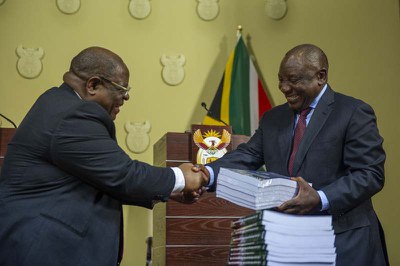 The President’s Response to the State Capture Report
The President’s Response to the State Capture Report
On 22 October 2022, President Cyril Ramaphosa released the government’s response to the findings and recommendations of the Zondo Commission. The response puts forward a number of actions that will be taken to implement the recommendations aimed at the executive and the presidency.
In November, the HSF published a Brief that identifies shortcomings in the President’s response and discusses some of the crucial promised actions that have the potential to breathe life into the Zondo Commission’s findings and recommendations. These include the professionalisation of the public service, making permanent the Investigating Directorate, enhanced protection for whistle-blowers and the possibility for real, meaningful electoral reform.
Read the full Brief here.
Josef Venter
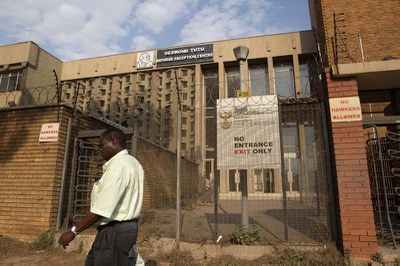 ZEP Holders Subject to Agonising Delays
ZEP Holders Subject to Agonising Delays
Despite the HSF launching its application to review Minister of Home Affairs, Aaron Motsoaledi’s decision to terminate the Zimbabwean Exemption Permit (ZEP) on 14 June this year, this matter has been subject to unfortunate delays. After originally being set down for hearing in October this year, the rush of participants in the litigation has now pushed proceedings out to 11 – 14 April 2023, just over two months before the ZEP is set to expire on 30 June 2023. The delay is set to extend the agonising uncertainty under which ZEP holders have lived since the Minister made his decision.
The HSF’s court papers can be read here.
Christopher Fisher
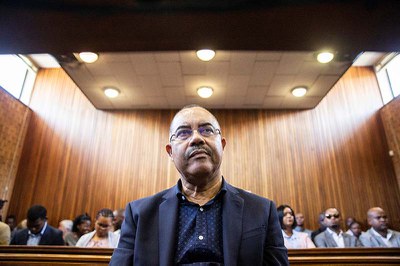 Opposing Mozambique’s Attempts to Extradite Manuel Chang
Opposing Mozambique’s Attempts to Extradite Manuel Chang
The HSF has been involved in litigation surrounding the extradition of former Mozambican Finance Minister, Manuel Chang since its first began in 2019. Mr Chang stands accused of fraud and corruption by the American and Mozambican governments, and has found himself the subject of competing extradition requests as a result. The HSF, alongside Forum De Monitoria Do Orçamento, a collective of Mozambican civil society organisations, have argued against Mr Chang’s extradition to Mozambique on the grounds that he is likely to be immune from prosecution there. A 2021 High Court judgement shared these concerns and held that Mr Chang should be extradited to the USA instead.
The government of Mozambique subsequently launched a flurry of applications for leave to appeal. One to the High Court, which was dismissed. Another to the Constitutional Court at the end of 2021, which the HSF opposed. The Constitutional Court dismissed the application. Then another to the Supreme Court of Appeal, which the HSF has again opposed and in respect of which we are awaiting directions. In the meantime, Mr Chang remains in Modderbee Prison in Gauteng after his arrest in Johannesburg in December 2018.
Read the HSF’s affidavits opposing the direct appeal to the Constitutional Court here and leave to appeal to the SCA here.
Divashnee Naidoo
 Seeking Accountability for Bain
Seeking Accountability for Bain
Following Bain & Company being banned by the South African National Treasury and the UK Cabinet Office, the HSF has pursued efforts aimed at holding Bain accountable in the United States for its corrupt involvement at SARS during State Capture. To this end, the HSF wrote to the US Department of Justice, Foreign Corrupt Practices Division asking it to investigate Bain for potential breaches of the US Foreign Corrupt Practices Act of 1977. We received confirmation of receipt from the US Department of Justice and thereafter sent further information and documentation detailing Bain’s conduct.
Read the HSF’s letter to the US Department of Justice here.
Read the HSF’s memorandum on Bain & Company corrupt activity at SARS here.
Divashnee Naidoo
HSF In the Media
News Interviews
-
Watch Nicole Fritz join SABC News to discuss former President Jacob Zuma’s medical parole being dismissed with costs, here: https://www.youtube.com/watch?v=kHr6LVDiN_E
-
Watch Nicole Fritz deliver the keynote address on the life and times of Helen Suzman at the Helen Suzman Public Lecture and Exhibition, here: https://www.youtube.com/watch?v=rGqtmdew9Ao
-
Watch Nicole Fritz join the SABC News to discuss the looming deadline for the expiry of the Zimbabwe Exemption Permit (ZEP), here: https://www.youtube.com/watch?v=00VcNv6ieYg
-
Watch Christopher Fisher join Michelle Craig from Newzroom Afrika to discuss the decision by the Supreme Court of Appeal in former President Jacob Zuma’s parole matter, here: https://twitter.com/Newzroom405/status/1594919006389116930?t=ZREYe63MXB2SJuB3M57uZQ&s=08
-
Watch Chelsea Ramsden join Stephen Grootes from Newzroom Afrika to discuss how the Judicial Services Commission (JSC) can reform, here: https://youtu.be/uqeXUUZniIM
Op-eds
-
Read Nicole Fritz’s comment on how SA was recently left to turn in the wind, here: https://www.businesslive.co.za/bd/opinion/columnists/2022-12-08-nicole-fritz-how-we-were-left-to-turn-in-the-wind/
-
Read Nicole Fritz’s comment on how the review of the death of Imam Haron serves our sense of history, here: https://www.businesslive.co.za/bd/opinion/columnists/2022-11-09-nicole-fritz-review-of-the-death-of-imam-haron-serves-our-sense-of-history/
-
Read Chelsea Ramsden’s comment on the good, the bad and the in-between of the Judicial Services Commission (JSC) interviews, here: https://www.dailymaverick.co.za/opinionista/2022-10-25-the-good-the-bad-and-the-in-between-of-the-jsc-interviews/

